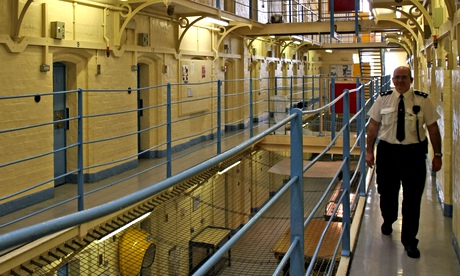An inquest jury has said a prisoner who took his own life was not shown enough compassion by staff at the jail.
The jury at Suffolk coroner’s court found that David Smith, 38, killed himself at Highpoint prison in Newmarket, Suffolk, in May 2014. He was serving three and a half years for drug offences.
The jury heard that Smith was transferred from Chelmsford prison to Highpoint on 23 May 2014. On arrival, he asked to speak to a listener – prisoners trained by the Samaritans – but none were available.
He asked to call the Samaritans helpline, but the phone in the induction unit was missing. Smith attempted to hang himself that evening and died in hospital the following day. He had a history of depression and self-harm. His was the third of four self-inflicted deaths at Highpoint in 18 months.
The jury was told that staff failed to activate the prison’s emergency code system, which would have triggered an automatic call for an ambulance. The driver of the ambulance that eventually responded said it took him 12 minutes to reach the cell after he arrived at the prison. He said the prison officer who guided him “ambled along” in front of his vehicle.
The jury found Highpoint’s failings included: lack of compassion for prisoners, lack of training of officers, insufficient staff on duty, failure to check logbooks, failure to earlier open a suicide and self-harm procedure and then implement that procedure.
Smith’s parents, Julie and Tony, said their son should still be alive: “David was calling for help, but no one helped him. If they had done their jobs properly he would still be here today.”
Deborah Coles, director of Inquest, said the jury’s findings encapsulated the crisis within the prison system.
“HMP Highpoint is not learning from its own failures, or improving the care and support provided to prisoners. The failures identified by this inquest must be responded to by the prisons minister, Sam Gyimah,” she said.
Sara Lomri, of Bindmans solicitors, who represented the family, said this was the third of four linked inquests arising from the deaths of four young men at Highpoint.
“It is vital that lessons are learned by the management of the prison and steps taken to ensure that the failings identified, by this and the other three inquests, are comprehensively addressed to ensure further deaths are avoided,” she said.
A Prison Service spokesperson said: “Our sympathies are with David Smith’s family and friends. We have already taken action and accepted all the recommendations following the Prisons and Probation Ombudsman’s investigation. We will now carefully consider the inquest findings to help ensure such incidents are not repeated.
“Safety in prisons is fundamental to the proper functioning of our justice system and a vital part of our reform plans.”
• In the UK, the Samaritans can be contacted on 116 123. In the US, the National Suicide Prevention Hotline is 1-800-273-8255. In Australia, the crisis support service Lifeline is on 13 11 14. Hotlines in other countries can be found here.
Jail staff lacked compassion for prisoner who took his life, inquest finds

